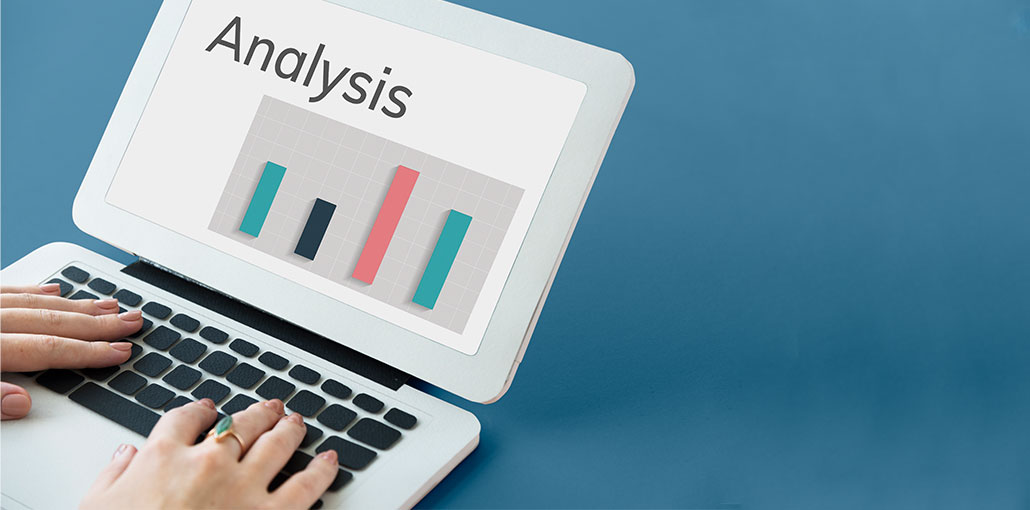Data Analytics is the science and art of gathering, sorting, and processing data. It uses statistical models and iterative methods and transforms these into useful business insights using Data Analytics tools. Analytics’ primary goal is to identify which datasets are important for an organization and to show how they can be used to solve business problems, increase productivity, and generate revenue.
Many questions are raised when it comes to Data Analytics Tools for Businesses.
Data Analytics tools can be used in daily business operations to allow companies to analyze large amounts of data and gain a competitive advantage. Analytics software tracks data from inventory history to current sales.
Also read: Data Analyst: What it is and How It’s Work
20 Most Popular Data Analytics Tools
1. Excel
Excel is an excellent tool for analytics. It works well with small data and can be extended to handle large amounts of data. Excel has many powerful features such as form creation, PivotTable, and VBA. Excel’s large system allows users to use it to analyze data to meet their needs.
2. Tableau
It’s one of the most powerful Data Analytics tools available for businesses. Its core features are the PivotTable of Excel and PivotChart. Tableau is an analytical visualization tool with a data cleaning function. It can perform efficient analytical functions.
3. Qlik Sense
Qlik Sense is a popular choice for modern data analysis tools because it uses Machine Learning to improve the quality of data mining. This Data Analytics software is cloud-agnostic, meaning that organizations can use it in any cloud within their multi-cloud infrastructure. It is flexible and robust across public, private, and hybrid clouds.
4. ThoughtSpot
ThoughtSpot is a next-generation Data Analytics tool that focuses on search first’ and has been awarded a place on the Best Data Analytics Tools list. ThoughtSpot’s key feature is an AI-based recommendation system that leverages crowdsourcing. The search interface allows for easy queries of complicated questions and analyses billions of data arrays using Artificial Intelligence.
5. FineReport
FineReport’s self-service data analysis has made it one of the most popular Data Analytics tools. It is suitable for small and medium-sized organizations. You can easily create different types of reports using the drag-and-drop interface. It can connect directly to any type of database, which allows it to customize and quickly create a variety of weekly, monthly and annual reports.
6. MicroStrategy
MicroStrategy’s Hyper Intelligence linking technology uses Application Programming Interface connectors to connect all computing platforms that use MicroStrategy for the unifying layer. MicroStrategy’s innovative approach makes it one of the most widely used modern data analysis tools. The ability to combine all business content from browser-based systems with competing analytics software makes it an easy-to-use and informative analytics dashboard. The dashboard provides real-time insight when a user clicks on the link.
7. R & Python
R and Python are two of the most important Data Analytics tools. These languages are versatile and powerful, and they make up an indispensable open-source Data Analytics tool. The R language improves statistical analysis and data distribution through the use of algorithms to classify clusters or regression analysis. Python allows you to perform predictive analysis in addition to statistical analysis.
8. Sisense
Sisense is an advanced analytics software that’s suitable for companies dealing with large amounts of data. This Data Analytics software takes advantage of cloud-native infrastructure, which allows it to scale with container technology and grow with your data requirements. Its proprietary caching engine speeds up data crunching and allows it to handle a variety of complex enterprise analytics workloads.
9. TIBCO
TIBCO, a Data Analytics platform that uses ‘Machine Learning Augmented Data Analytics’, is suitable for both experienced Business Analysts and freshers. TIBCO’s main feature is streaming analytics. This allows it to provide data mining on the run, with the knowledge of trends in the data accumulated through the torrents of data from other devices or the Internet of Things (IoT).
10. SAS
SAS is an analytics tool that can be used to manage large-scale data mining processes. Data Analytics tools and techniques make use of ML, AI, and automation to satisfy Business Analytics requirements. They allow for all aspects of next-generation data mining, including visualization.
11. Xplenty
Xplenty, a cloud-based Data Analytics Software that unifies all your data sources, is available. It provides Data Analytics tools and techniques that will keep your marketing automation current.
12. SAP
SAP’s strong functionality includes augmented Data Analytics techniques and tools, making it one the most popular Data Analytics tools. The fully integrated Data Analytics tool list offers full analytics functionality within one software. Cloud-native multi-cloud compatibility allows you to connect with embedded solutions via a variety of APIs.
13. Birst
First, a SAAS BI, which is a free, open-source Data Analytics tool, includes data discovery, analysis, reporting, and reporting. This simple analytics software integrates data from multiple sources and automates the data warehouse.
14. WebFOCUS
WebFOCUS, a commercial and proprietary Data Analytics tool, offers robust data solutions that can be managed and compiled in a simple way. Its ability to use data integration and point-to-click analytics allows it to deliver data via user-friendly InfoApps.
15. BusinessObject
BusinessObject is a modern Data Analytic tool that allows users to share Business Intelligence information (BI) throughout an organization. It is powered by SAP. This popular Data Analytics tool can be used to improve business operations and allow Business Analysts access to business data.
16. IBM Cognos
IBM Cognos is a web-based integrated Business Intelligence and Data Analytics program. It was developed by IBM. It allows users to gain insights quickly and offers a toolkit for reporting, analyzing, and governing data via cloud support.
Also read: The Difference Between Business Intelligence and Business Analytics
17. Board
Board, a comprehensive Business Intelligence and Data Analytics solution that includes Corporate Performance Management, is all-in-one. It allows you to access multiple data sources and includes data visualization, drills down, and drill-through functionality.
18. Yellowfin
Yellowfin, one of the most recent Data Analytics tools, includes dashboards, data discovery, and data visualization as well as collaborative Business Intelligence. It features data mapping and mobile BI, which allow users to monitor and access business data from multiple sources.
19. Bizzscore
Bizzscore, is an online commercial Data Analytics tool that allows you to create instant analytic reports which can then be exported to Excel and Powerpoint. There are four main data analytics tools: Bizzscore (for analyzing data and preparing management dashboards), Bizzdata, for integrating data sources, Bizzquality (for creating business insights and inputting derived information), and Bizzdefiner.
20. Jaspersoft
Jaspersoft, a commercial open-source Data Analytics tool that provides interactive Business Analytics to its users, is Jaspersoft. It provides reporting, OLAP, and data integration.
Conclusion
These are the top 20 Data Analytics tools that businesses use today. The importance of each tool depends on what type of organization it is and how much data it processes daily.










Leave a comment